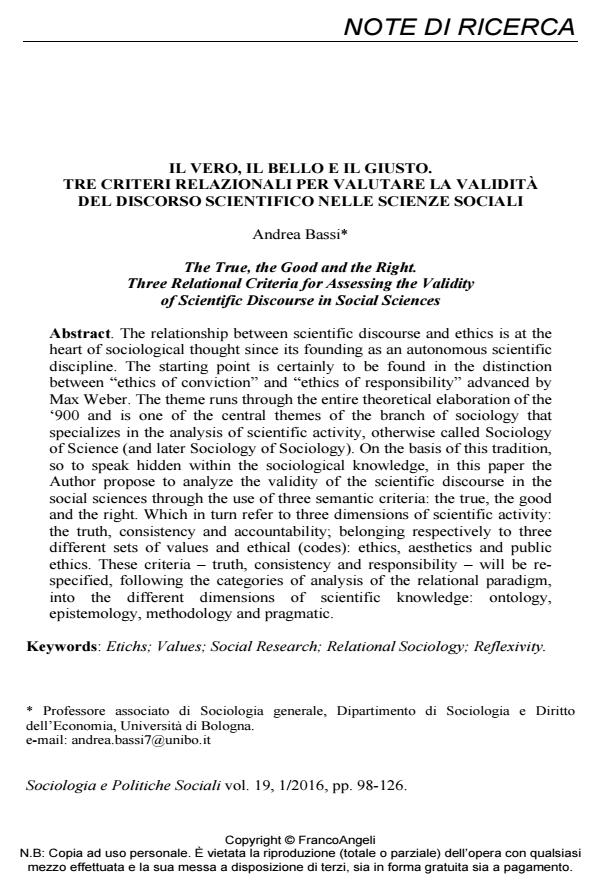The True, the Good and the Right. Three Relational Criteria for Assessing the Validity of Scientific Discourse in Social Sciences
Journal title SOCIOLOGIA E POLITICHE SOCIALI
Author/s Andrea Bassi
Publishing Year 2016 Issue 2016/1
Language Italian Pages 29 P. 98-126 File size 193 KB
DOI 10.3280/SP2016-001006
DOI is like a bar code for intellectual property: to have more infomation
click here
Below, you can see the article first page
If you want to buy this article in PDF format, you can do it, following the instructions to buy download credits

FrancoAngeli is member of Publishers International Linking Association, Inc (PILA), a not-for-profit association which run the CrossRef service enabling links to and from online scholarly content.
The relationship between scientific discourse and ethics is at the heart of sociological thought since its founding as an autonomous scientific discipline. The starting point is certainly to be found in the distinction between "ethics of conviction" and "ethics of responsibility" advanced by Max Weber. The theme runs through the entire theoretical elaboration of the ‘900 and is one of the central themes of the branch of sociology that specializes in the analysis of scientific activity, otherwise called Sociology of Science (and later Sociology of Sociology). On the basis of this tradition, so to speak hidden within the sociological knowledge, in this paper the Author propose to analyze the validity of the scientific discourse in the social sciences through the use of three semantic criteria: the true, the good and the right. Which in turn refer to three dimensions of scientific activity: the truth, consistency and accountability; belonging respectively to three different sets of values and ethical (codes): ethics, aesthetics and public ethics. These criteria - truth, consistency and responsibility - will be re-specified, following the categories of analysis of the relational paradigm, into the different dimensions of scientific knowledge: ontology, epistemology, methodology and pragmatic.
Keywords: Etichs; Values; Social Research; Relational Sociology; Reflexivity
Andrea Bassi, Il vero, il bello e il giusto. Tre criteri relazionali per valutare la validità del discorso scientifico nelle scienze sociali in "SOCIOLOGIA E POLITICHE SOCIALI" 1/2016, pp 98-126, DOI: 10.3280/SP2016-001006